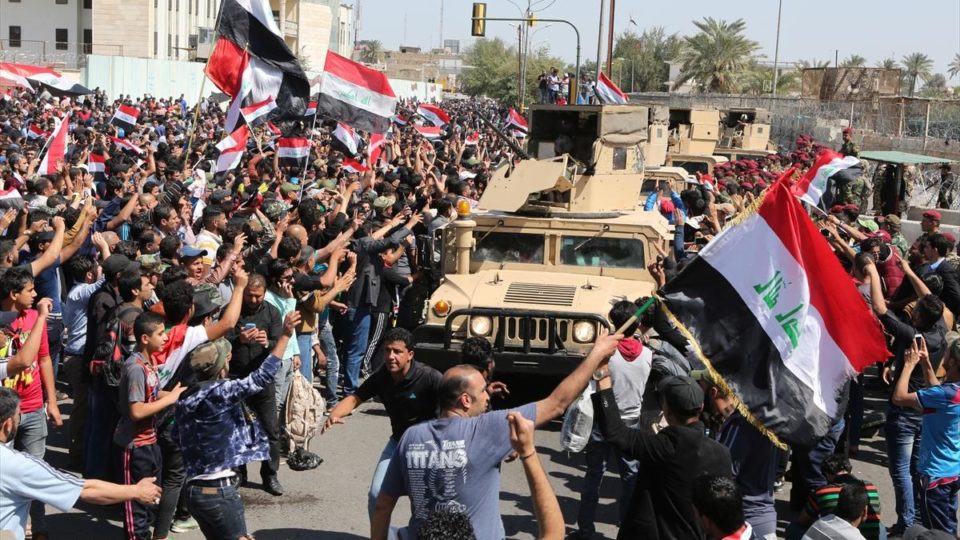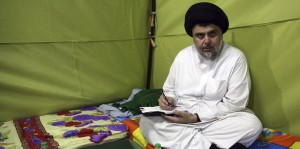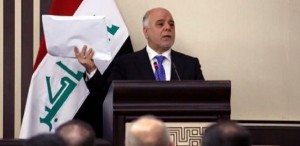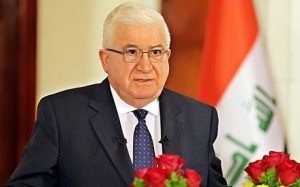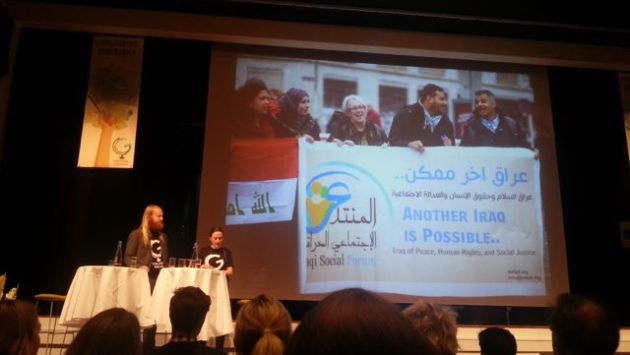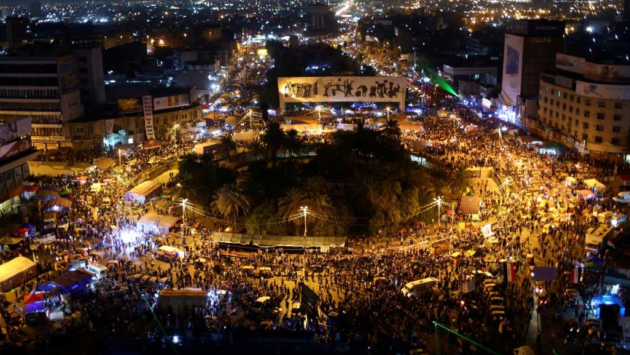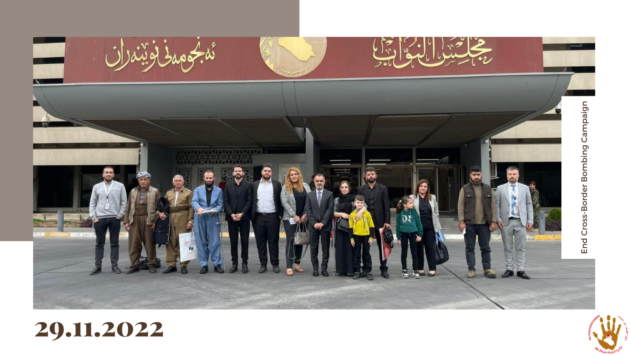Popular Protests Escalate in Iraq as Installation of “White Envelope Government” Stalls
By Ismaeel Dawood and Terry Kay Rockefeller (ICSSI).
Dramatic events are unfolding in Baghdad on April 30, 2016:
- Peacefully and in collaboration with security forces, thousands of Iraqi protestors, most of them followers of Muqtada al-Sadr, have entered the Iraqi Parliament building in the Green Zone;
- Protesters are calling on all to protect the public offices and keep the protests “selmyha” or nonviolent;
- Sadr’s followers are tearing up American flags , but have damaged no buildings or threatened any individuals;
- Sadr called for protecting the foreign embassies and their staffs, however, Japan, Jordan, UAE, Saudi Arabia and others have either left or evacuated to the US embassy;
- Many Iraqi politicians have escaped with their families;
- Demonstrators are denouncing former Prime Minister Maliki as a “big thief ”; his whereabouts are unknown;
- Prime Minister Abadi has been moved to a safe place, it is unclear if he is still in the Green Zone;
- The UN closed its offices in Baghdad;
- Baghdad Security Forces closed roads to Baghdad; no one may enter but the way out remains open.
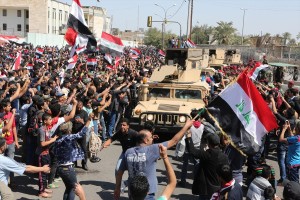
The ICSSI Shares this Background to the Events
Hundreds of thousands of Iraqi citizens fill Baghdad’s Tahrir Square, demanding “An End to Sectarianism” and the establishment of a new, technocratic government. Prime Minister Haider al-Abadi takes no responsibility for delays in installing new leaders. He blames the Parliament, which failed to vote on his “white envelope government” and then bitterly split into opposing factions over the prospect of change. Baghdad went to sleep one night and woke the next day to two parliaments and three “governments”! Meanwhile, Iraqi Kurdistan falters along with a one-man government and no parliament!
Since June 31st, 2015, protests to force Iraqi politics in the direction of reform have taken place weekly. The Iraqis are denouncing the lack of vital services (electricity and water), high-level government corruption, and rampant sectarianism. These protests rapidly spread across Iraq from north to south, although the focus in Baghdad remains strong where the number of protesters steadily grows. The demonstrations produced some minor reforms, however, significant obstacles prevented comprehensive change.
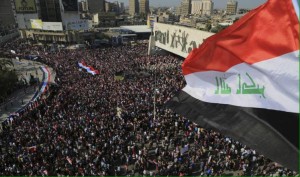
Then two months ago, a well-known political actor reemerged in the midst of the protests. At a decisive moment, Muqtada al-Sadr decided to throw his full support behind the protesters. On Saturday the 13th of February 2016, Sadr challenged Abadi to form a government of technocrats within 45 days, threatening a vote of no confidence if the Prime Minister failed. In an historic speech Sadr declared that the ministers and MPs of the Ahrar Coalition, Sadr’s political bloc, no longer represented him. Then in a speech in Tahrir Square, on Friday the 26th of February, Sadr called for a sit-in surrounding the Green Zone (the protected area where the Iraqi Parliament, President, and government offices are located, along with many foreign embassies) until a new government of technocrats took office. He ended his speech by proclaiming, “Today we are close to the walls of the Green Zone, but tomorrow the Iraqi people will enter it!”
On March 18th, thousands of protesters surrounded the Green Zone. Police and military could not (or would not) prevent them from crossing the main bridges that connect Tahrir Square with the Green Zone. Security forces did not try to stop protestors when they installed tents next to the checkpoints and main gates to the zone.
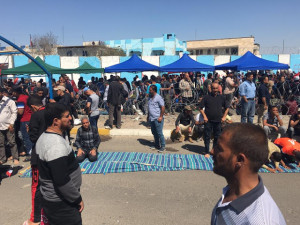
Following this escalation of the protests to a new, second level, tensions were very high. For a moment it looked like the protesters would enter the Green Zone, expel the politicians, and put an end to the sectarian regime that has governed Iraq since the US invasion in 2003. Politicians were alarmed. Staffs at the embassies located in the Green Zone were shocked. What the protesters might do next was unclear, but most people assumed that Iraqi politicians, supported by US and Iranian officials in Baghdad, would never allow the demonstrators to enter the zone.
The White Envelope Government
After protesters had surrounded the Green Zone for days, Sadr began planning his third move. On Sunday the 27th of March, he visited the sit-ins outside the Green Zone and declared that he, as the representative of the Iraqi people, would enter the zone accompanied by a few of his followers, while the rest of protestors remained outside awaiting his orders. This is how he interpreted his previous declaration “tomorrow the Iraqi people will enter it!”
Within a few hours, Iraqis were exchanging photos of Sadr sleeping inside a small green tent inside the Green Zone. A second small tent, installed nearby was dedicated as a space for negotiation. A number of politicians entered the tent, but no news of what was discussed was made public. At night, a white envelope was delivered to Muqtada al-Sadr’s tent; inside were the names 16 ministers most of whom were totally new to Iraqi government. They were technocrats, from a variety of backgrounds and cities, from the north to the south of Iraq.
On Thursday morning, March 31st Iraqi Prime Minister Haider al-Abadi officially presented the same white envelope to the Speaker of the Iraqi Parliament during an official session. He did not discuss the 16 alternative ministers or even read their names, but only presented the white envelope and asked the Parliament to vote on its contents. Abadi’s strategy appeared to be to reform the Iraqi government by restructuring the cabinet, reducing the number of ministries from 22 to 18, and immediately replacing 16 of the cabinet ministers with qualified, technocrats. For the moment, he would leave the ministers of defense and the interior unchanged.
Abadi’s proposal was nothing less than a political bombshell thrown to the Parliament, since the Parliament as it is presently constituted represents the sectarian leaders of Iraq. To vote in the technocratic ministers Abadi proposed would be laying the first stones on their own graves!
Sadr for his part then declared that the sit-in was over and the protesters should return to Tahrir Square and continue their demonstrations for change and reform.
Baghdad: Two Parliaments with Two Different Speakers
Dr. Salim al-Jabouri, the Speaker of the Iraqi Parliament, asked the Parliamentary committees to study the “white envelope” names, to make sure that the individuals were eligible to serve according to Iraqi law and the constitution, before any voting took place. No one could be a high-ranking Baathist, have a criminal record, or a history of corruption. While this was a logical step, and one required by the Iraqi constitution, in reality the review was a move to gain time – ten or more days – while the political leaders decided what they should do.
In fact, the night of Monday April 11th, just before Parliament was scheduled to vote on the white envelope names, the political leaders gathered at the house of the Iraqi president Fuad Masum to discuss their way out. President Masum (Kurdish), Prime Minister Abadi (Dawa Party/Shia), Speaker of the Parliament Jabouri (Islamic Party/Sunni), leader of the Islamic Supreme Council of Iraq Ammar al-Hakim (Shia), Iraq’s former national security adviser and current chairman of the Popular Mobilization Committee in the Iraqi government Falih al-Fayadh (Dawa Party/Shia), Hashim al-Hashimi (Islamic Virtue Party/Shia), leader of the National Movement for Reform and Development Jamal al-Karbuli (Sunni), leader of the Qualities United for Reform Osama al-Nujaifi (Sunni), leader of the Badr Organization and its militia Bader Forces Hadi Al-Ameri (Shia), leader of the Iraqi National Dialogue Front Saleh al-Mutlaq (Sunni), and Iraq’s Minister of Higher Education Hussain al-Shahristani all agreed to sign a new document of commitment (in Arabic wathiqat sharaf). It specified, yet again, quotas for each of the political parties and specified how many Parliamentary ministers would come from each party. For all intents and purposes, the document decimated the principle of the “white envelope” proposal and restored overt sectarianism, that Shia, Sunni and Kurds should hold positions in the government, other official institutions, and even independent institutions according to strict numerical formulas, not merit!
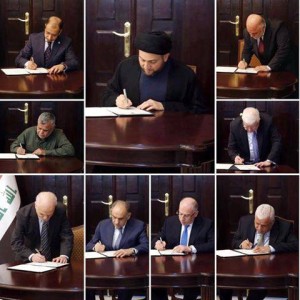
The document was very badly received. Iraqis writing on social media, the protesters, and independent Iraqi journalists were all highly critical, describing the document as a huge step backwards in realizing the reforms demanded by the majority of Iraqis. Iraq’s “three presidencies”: the Prime Minister, the President, and the Speaker of the Parliament, all of whom were present at the meeting, were the principal promoters of the document. So at this point, the protesters changed their demand from forming a new government to removing these three leaders, since they clearly stood for preserving the sectarian regime in Iraq.
On Tuesday, April 12th when the Iraqi Parliament gathered to discuss the proposal for reforming the government, most members were totally surprised when Prime Minister Abadi presented an entirely new list of 19 names, that those who attended the meeting the night before had chosen.
Speaker of the Parliament Jabouri presented the new names and then gave the MPs three hours to study the list. Most of them were very upset because their leaders had not involved them in any discussions; the “big heads” had cooked up a scheme among themselves that was not at all what the protesters were demanding. Soon many of the MPs revolted and declared their opposition to the sectarian quotas. Some members changed their seats to symbolically reflect their disapproval, others tried to occupy the Speaker’s seat.
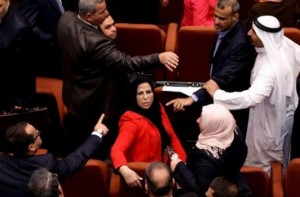
Seeing no possibility of controlling the situation, Jabouri postponed the session. However, at least 155 (perhaps as many as 171, it is unclear) MPs decided to organize a session inside the Parliament on Thursday the 14th of April. They succeeded. The session was led by an older Parliamentarian, Mr. Adnan al Janabi, who called for a vote to demand the resignation of the Parliamentary presidency, which includes the Speaker Jabouri (Sunni), the first deputy Sheikh Humam Hamouda (Supreme Islamic Council of Iraq/Shia), and the second deputy Aram al-Shake (Change Movement/Kurdish).
By this point, the rebel MPs had decided they agreed with the protesters that the only way to end sectarian quotas was to remove “the three presidencies”. Their strategy was first to vote on the resignation of the Parliamentary presidency, then the Prime Minister, and finally the President, but their ambitious plan could not be fully realized. Although the first step (removing the Parliamentary presidency) was nearly complete, in order fully to comply with the Constitution, they had to seat a new Parliament presidency. Unwilling to allow the heads of the political parties to choose replacements, the MPs tried to conduct elections. But, as party leaders applied huge pressure on their MPs to leave, it became difficult to maintain a quorum (constituted by 50% plus one of the total number of 328 MPs, or 165); so, whether or not the session led by the temporary Speaker and the resignation of the Parliamentary presidency were proper and legal is not clear, since the exact number of MPs who remained in the room is unknown.
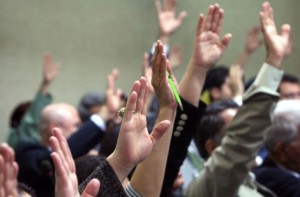
The protest within the Parliament was joined by MPs from all backgrounds, Shia, Sunni, and various minorities, all of whom were convinced that the sectarian system should be abolished – despite the fact that they were members of Parliament as a result of the system! However the main political forces within the revolt were the State of Law MPs (former Prime Minister Maliki’s coalition) and the Ahrar MPs (Sadrists). Herein lay the ultimate contradiction: how could Maliki and Sadr, enemies for the last two years, be today united behind a common goal! Sadr and a majority of Iraqis accuse Maliki of corruption and sectarianism, and hold him directly responsible for the current security crises, the advance of Daesh, and all the tragedies that followed.
The heads of the political parties in Iraq, above all those who had met at Fuad Masum’s house, immediately rejected the election of a new Parliamentary presidency, insisting that the number of protesting MPs had never constituted a quorum. They maintained that Jabouri and his deputies were still the leaders of the Iraqi Parliament. From that moment forward, the Iraqi Parliament stood divided: the protesters and their temporary Speaker on one side and those still supporting the old Parliamentary presidency on the other. And since that time neither Speaker has been able to take a seat in the Parliament. At the same time, a number of ministers resigned from the government and two different sets of cabinet ministers are waiting to see which will assume office!
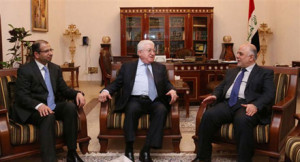
Political leaders continue to meet place, although principally outside of Parliament, but no concrete solutions have emerged. One option that was put forth was to have the federal court of Iraq issue an opinion on who is the legitimate Speaker of the Parliament. But this option would require the Speaker himself to present the case, which is unlikely as it could lead to his losing legitimacy. Moreover, going through the court would take a long time and would still produce a political choice. Jabouri suggested another option, which is to have President Masum abolish this Parliament and call early elections, an option that seems impossible due the security situation. Daesh occupies Iraq’s second largest city, Mosul, and other smaller cities, how can you hold fair elections when citizens in these places could not vote! Furthermore, the Iraqi government’s severe financial crisis virtually precludes the cost of such elections!
Masum then made his own suggestion. After studying the options, he proposed to create a joint seat for the two Parliamentary factions. And to win over the protestors, he proposed that the “old” Parliamentary presidency would first sit as members, then Jabouri would give a speech and call for a vote on the resignation of the presidency. Masum planned to wait and see how the united Parliament would vote for and take it from there! This actually was attempted on Tuesday April 19th, and it totally failed.
Instead of Masum chairing the session, the elder MP, Adnan al Janabi, who was selected and supported by the rebel MPs, took charge. This led the other faction to rise up in protest. Many MPs, first the Kurds, later the followers of Hakim and others left the room. Janabi nevertheless proceeded to open elections for the positions of Speaker and his deputies, although no substantive action was taken. Janabi chose to simply leave the session open until new candidates’ names were proposed – when or how was not at all clear. Rather than uniting the Parliament, this dramatically deepened the division, definitely not Masum’s plan!
The “one leader” in Kurdistan Iraq decides also for kurd MPs in Baghdad
No real discussion has taken place among Kurdish political parties concerning what is going in Baghdad. This is because the government in the Iraqi Kurdistan is suffering its own breakdown. The Iraqi Kurdish Parliament has not met in more than six months, since Barsani decided to prohibit the Speaker of the Parliament, Yusuf Mohammed, who represents the Quran (Change) Movement, from entering Erbil and therefore assuming his official position.
Barzani took this extreme action after the wave of protest moving across Iraq reached the Kurdish region and its cities, in August 2015. Protests in the Kurdish region echoed those elsewhere in Iraq: institute political reforms to end corruption. And with his act Barzani, who has been president of the KRG since June of 2005, also ensured that any discussion about a new president for the region were totally blocked. His political opposition, the Quran (Change) Movement and the two Islamic parties, the Kurdistan Islamic Union–Muslim Brotherhood in Kurdistan and the Kurdistan Islamic Group all consider Barzani’s presidency of the KRG illegitimate, since his third term of office has come to an end. But Barzani wants his presidency extended yet again!
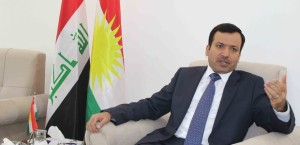
As leader of the Kurdistan Democratic Party (KDP) and president of the Kurdistan region, Barzani does not see the changes in Parliament in Baghdad or the discussions about ending the quota system of any concern to him or the Kurds. He pushed for the Kurdish MPs to oppose any change in Kurdish representation in the central government. He has insisted that KDP and Patriotic Union of Kurdistan (PUK) MPs explain to other Iraqi leaders in Bagdad that Barzani wants no changes in Kurdish representation. This was the central message his delegation from Erbil communicated to Baghdad in April 2016.
Yet according to the MP Tafcke Ahmed, the delegation that delivered this message, which was led by Prime Minister of Iraqi Kurdistan Nechirvan Barzani, really represented only the KDP and PUK – not the Quran (Change) Movement or the Kurdish street. Ms. Ahmed added that Barzani needs to reform his own party before claiming to speak for all of Iraqi Kurdistan.
In fact Kurdish MPs had no choice but to reject changes in Baghdad since they could not afford to add to the internal political crises and divisions that they have been enduring for months. Any change in Kurdish leadership positions that took place in Baghdad would throw into question just who was representing whom in a new central government, or more problematic, how to choose who could represent them as a new president of Iraq or deputy to the speaker of the Parliament.
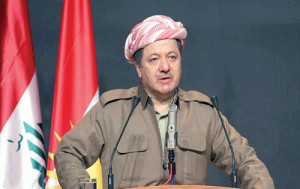
However discussions within the delegation and statements by some Kurdish MPs seemed to express a united position, which is if change does happen then the Kurds should have 20% of the ministers in the new government and they should be candidates from the same Kurdish parties that the current ministers are from.
Back to The White Envelope
On the 14th of April, Muqtada al-Sadr traveled to Lebanon and met with Hassan Nasrallah, the Secretary General of Hezbollah. Sadr was not the only one visiting Beirut that day. Local journalists reported that at the same time a representative from Grand Ayatullah Ali al-Sistani’s office, Jwad Shahristani, and either al-Maliki, or someone representing him, were also in Beirut to meet with Nasrallah.
No information about their discussions was released, although everyone knows the focus was on how to reconcile the different Shia leaders in Iraq. Upon returning from Beirut, Sadr significantly changed his position and stated that MPs of his coalition should leave the protests and take their orders directly from him, in other words, they should not participate in any parliamentary session except one for voting a new technocratic, non-sectarian government. He also warned that someone is trying to manipulate the protests in order to regain power.
Sadr’s position was viewed as a means to prevent Maliki from returning to lead the government, a risk that is Sadr’s main concern. It is only due to Sadr’s alliance with Hakim and other Shia leaders that Maliki was prevented from winning a third term as Prime Minister following the election of 2014. Possibly a new division is what Maliki is waiting for, since with his 89 MPs he could use the division to turn the tables on Abadi’s reforms and reclaim leadership. With the withdrawal of the Sadrists, no faction of MPs can produce a quorum, or number even close to a quorum. So for now, a revolution by MPs is precluded!
Still, pressure for reform continues, and Parliament must eventually meet again and discuss a new government. Just what they will debate and who will lead the future Parliament are very big questions. For now, Sadr’s actions have returned the “old presidency” to power. When Abadi is once again under pressure and forced to decide which list he will present for voting, will it be the “white envelope”, maybe a list that is slightly modified, or the one assembled by the “big heads”, or perhaps there will be a brand new list!
More promising developments might emerge from discussion among protesting MPs to form a national, multi-sectarian, multi-ethnic coalition within Parliament that can unite the opposition and put an end to the sectarian quotas.
To know what will happen we need to wait. This is how things looked earlier in the week of April 25th 2016.

